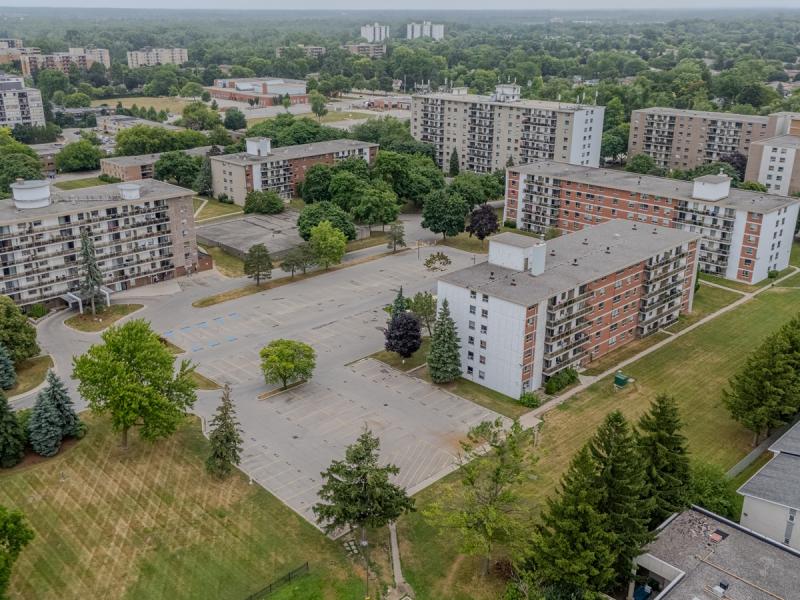Of all the new homes built during the past decade, only 11 per cent were rental units. With hundreds of thousands of new Canadians aspiring to call Toronto "home" by 2025, our housing affordability crisis seems to remain as severe as ever.
In light of all this, on Aug. 24 Toronto Mayor Olivia Chow outlined a plan to urgently develop an additional 25,000 rental homes, complementing the city's HousingTO 2020-2030 Action Plan target of 40,000 new affordable rental homes by 2031.
Chow directed staff to provide a report by the end of 2023, advising how to achieve this goal.
Part I of a two-part feature on the responses of rental housing industry experts to Toronto Mayor Olivia Chow's call for 25,000 new rental housing units. Click this link for Part II
This is exciting news and a remarkable opportunity to galvanize a collective force necessary to not only address one of the most pressing issues of our time, but also transform it into a golden prospect for creating a vibrant and livable city filled with thriving communities.
In an attempt to join efforts and bring more ideas to the table, I reached out to 12 leaders within the rental development sphere, spanning the private, governmental, professional and non-profit sectors.
I posed a simple yet crucial question to them: How, in your professional opinion, can we rapidly build 25,000 high-quality rental homes?
I asked for real, actionable and bold but realistic answers.
The response was overwhelmingly positive and encouraging — so much so that capturing it in just one article won't do justice to the ideas and insights. What follows is a collection of thoughtful ideas drawn from years of experience and a shared commitment to building a city that is both prosperous and affordable, a place we can all truly call home.
We will share these responses via a two-part column. Part II will be published tomorrow.
Elle Ziegler – Advisor, Innovation at Canada Mortgage and Housing Corp.

“It's not new ideas that we need so much as a way to test and implement the endless number of innovative ideas that are already out there and I see two things needed for that:
"We need a way to test ideas, including the innovation of regulations and policies, which many thought leaders do not have the power to change. To do this, we need to allow for and create regulatory sandboxes suited for the housing sector that allow us to test end-to-end and truly novel solutions in the real world and understand their impacts and unintended consequences on the system as a whole.
"We can come up with new ideas all day long but until we start chipping away at the issues preventing us from moving ahead, no single solution will solve the housing crisis; and (second) the courage to truly collaborate in order to remove barriers to the creation of rental housing.
"Genuine collaboration across the housing sector at the scale and rigour that is required can be very challenging. It means coming together as individuals who represent the citizens, industries and organizations involved in meeting housing needs and being willing to take risks, push against norms and show our vulnerabilities.
"This type of collaboration demands a thorough examination of the roles various stakeholders occupy within the housing system and holding each other mutually accountable to creating 'skin-in-the-game' partnerships.”
Adrian Rocca – CEO and founder of Fitzrovia

“We applaud Mayor Chow’s dedication to helping solve Toronto’s housing crisis. Bold and dramatic changes are necessary.
"Rental development economics have historically been challenging which is demonstrated by the lack of supply. Housing supply has been further constrained given the rise in interest rates and construction costs.
"We recommend streamlining/expediting the approvals and permitting process, with prioritization given to purpose-built rental projects. Speed is our focus and the quicker we can get projects into production, the more our institutional investors will have the confidence to invest in their backyard.
"Taxes and other municipal fees (DCs/property taxes) contribute significantly to construction costs, ultimately leading to higher rents and reduced housing supply. All levels of government should collaborate on reductions to development charges, the elimination of HST on new rental developments and a property tax abatement for all future and current rental under construction.
"Tax abatements will significantly help offset rising interest rates given it has a 30x impact on valuation.
"These solutions are required to truly fuel new supply. We are proud to be the largest new rental developer in the city and look forward to collaborating with the city on solutions to solve this housing crisis. That said, we need bold and decisive action today.”
Christian Huggett, MCIP RPP – Vice-president, Development, Podium Developments

“To get at least 25,000 rental homes built, we need to support and bolster a stable environment for them to be built. This includes:
- Immediately devote more financial resources to our planning, economic development and building departments, with an aim to properly staff applications and volume, direct required and planned growth, educate the public on these changes and reduce conflict.
- Break down and remove the NIMBY influence and political pandering, which costs both developers and taxpayers millions of dollars annually and stifles necessary growth. This is better accomplished by Item 1.
- Advocate for the upper-tier governments (province and feds) to maintain or improve government support of rental housing development, including programs that support rental housing construction (i.e. CMHC MLI Select) and programs that support and fund affordable housing, and ensure reasonable and non-punitive tax treatments during construction and completion.
- Decouple the provision of affordable housing as the developer’s responsibility. This is a complex social problem that requires considerable resources and a government-led strategic plan and funding.
- Do not mandate new construction rent control as this creates uncertainty for those already planning to build new rentals, discourages those capital partners who are looking to invest in long-term assets like rentals and creates instability and eliminates the potential for condo developers to pivot resources and build rental.
- Continue or improve local incentives for reducing development costs, including fee rebates, discounted development charges, streamlined and quicker approval processes and community improvement plans to encourage certain behaviours or building types (i.e. CIPs for Green Buildings).
- Dream and plan big, as the Provincial Housing Plan of 285,000 new homes in Toronto in the next 10 years needs to accommodate more than 25,000 new rental homes.
- Act now as the development cycle takes five to eight years, so progress and plans made now will not be felt for many years to come.”
Michele McMaster – VP of Housing & Community Strategy Habitat for Humanity Canada

"Across the country, municipalities are realizing that they need to find bold solutions to the housing crisis that lives in their communities. At Habitat for Humanity, we are watching the Toronto mayor’s rental initiative with interest because we believe the housing crisis can only be solved when all types of new housing is built – not just the affordable ownership housing Habitat builds.
"Mayor Chow is in an enviable position: while she must tackle the obvious cost of building today, she has a chance to do so in a way that helps create a better city for tomorrow.
"She can minimize the amount of construction capital she needs by selling strata to market landlords, in addition to supporting construction and operation by the co-op and nonprofit sector. This strategy would also help create socially diverse communities, strengthening the urban fabric.
"She could de-risk the city’s social and financial investments by actually building the much-vaunted 'missing middle' apartment buildings – buildings which are smaller, cheaper and faster to build – not putting all her eggs in a few 40-storey baskets.
"And, of course, she has the chance to make a beautiful city for tomorrow’s Torontonians, perhaps getting city planning and local architects to collaborate on streetscape design – maybe not Haussmann’s 45-degree zinc roofs, but something that turns this surge of new buildings into a coherent architecture of the city.
"These actions would address the biggest cost of all: the opportunity cost of hopelessness for, when people have a safe and decent place to live, they can realize their potential and contribute to our collective prosperity.”
Jonathan Diamond - Vice-president, Well Grounded Real Estate

“Instead of focusing on short-term incentives, we need to restructure the housing system to output what is required.
"The success of any restructuring should be evaluated along two dimensions: The first is time, i.e., decrease of approval time; the second is cost, i.e., decrease of project costs.
"To do so, the City of Toronto must first restructure the approval process to optimize for housing delivery as the current approval process requires too much time and resources, disproportionate to the value these controls offer. This involves removing all barriers to housing delivery found in our outdated Building Code and Zoning and Site Plan controls.
"I am proposing a process of subtraction where anything not in service of safe, high-quality and sustainable housing be removed. This would include such requirements for façade articulations, angular planes, various setbacks, city infrastructure improvements, dual egress, various sprinkler requirements, strict dehumidification requirements, just to name a few.
"It is also recommended that these controls be combined into a single application to reduce redundancies and move projects closer to a final, build-ready design. Remember, the objective is optimizing for housing delivery, not application approval.
"The other barriers relate to fees and taxes, which can reach 20 per cent of hard costs. This is a cost that does not add value to projects. Most of this cost is captured by development charges and HST paid on completion. And because apartment projects do not support much leverage, especially compared to their condo counterparts, these costs can make apartment projects unfeasible.
"It is recommended that development charges be eliminated and HST deferred.
"To jump-start Toronto’s housing goals, the city should understand the 25,000 units as a single task. This requires building approximately 20 million square feet of housing. The city should start by pre-approving sites that support this volume while removing development charges and making HST deferred. This would eliminate the need for lengthy and uncertain zoning and site plan (approvals) and speed up project timelines by two to three years.
"As well, CMHC needs to allocate resources for the delivery of these units, which requires approximately $12 billion. Their current application review times are incongruent with the city’s timeline. This is an ambitious undertaking, but I believe it can be accomplished with the right approach.
"We look forward to contributing to this goal."
Eric Lombardi – Founder, More Neighbours Toronto

"If Olivia Chow wishes to achieve her goal of building 25,000 additional rent-controlled units on top of the planned 40,000 units, they are going to need to do things differently.
"The existing Housing Now TO program has not been successful in part because it has to obey the rules enforced by the city’s own planning department for zoning and design.
"In order to accelerate time-to-market and reduce costs, the city needs to pre-zone its own properties to allow for much greater density than the existing allowances. It should also exempt these projects from arduous consultation and instead have a technocratic approval process.
"Furthermore, it should seek to standardize designs and architecture of new buildings, focusing on high-quality materials and finishes over architectural originality at every site. This repetition should enable buildings to achieve greater scale on input costs, with consistency improving productivity of construction partners.
"It should structure projects to be cash-flow neutral or positive over the long term by making developments mixed-income with market components that help the city pay for maintenance, interest and principle over time. This means the scale of what has to be built is larger than just 25,000 units alone.
"Finally, it should seek to partner directly with the CMHC and the federal government on this initiative, seeking to access federal interest rates for debt."









